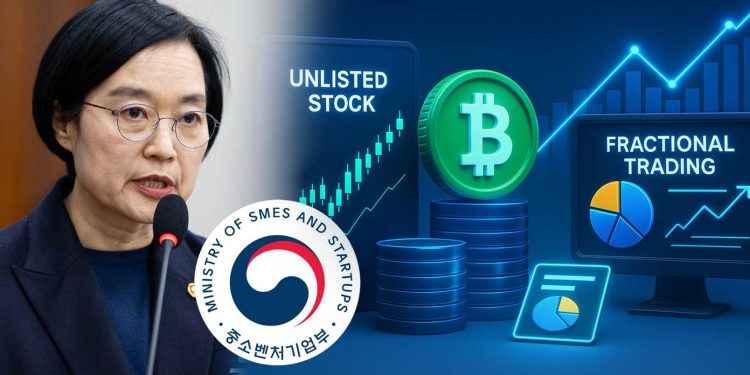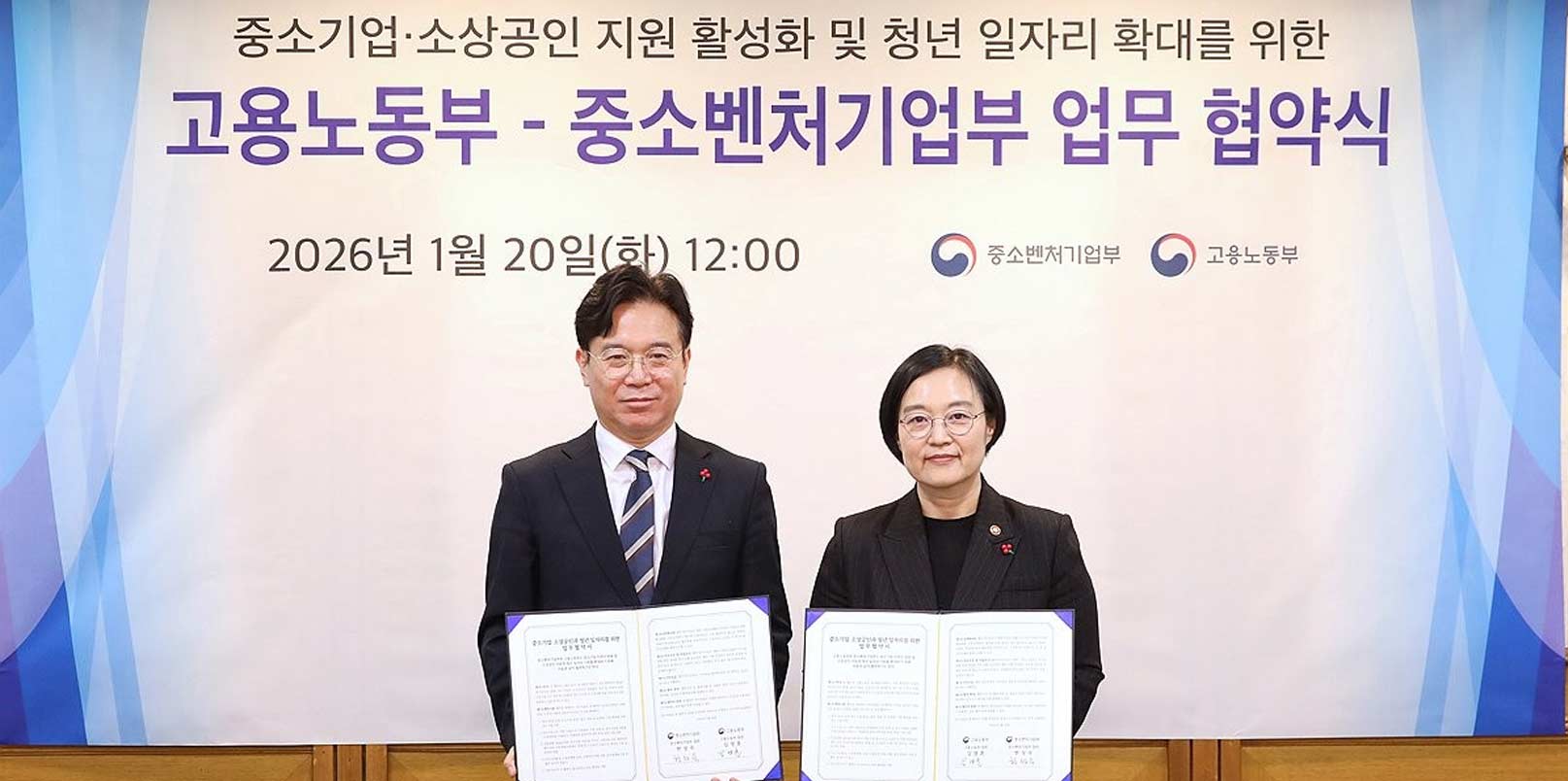Korea’s fintech ecosystem is moving closer to full institutional maturity. A new regulatory update from the Ministry of SMEs and Startups (MSS) now allows venture capital participation in fractional and unlisted stock trading platforms — a shift that could reshape how digital finance startups attract funding and scale innovation within the country’s evolving investment landscape.
Korea Opens Venture Investment Pathway for Fractional and Unlisted Stock Platforms
The Ministry of SMEs and Startups (MSS) announced on November 20 that venture capital investment will now be permitted in unlisted stock and fractional trading platforms, integrating these emerging services into the country’s formal financial system.
The policy update was issued through amendments to four administrative regulations covering registration and management of individual investment associations, startup accelerators, venture investment firms, and venture capital funds. The public consultation period for these amendments will remain open until December 10.
From Regulatory Grey Zone to Institutional Fintech Integration
Until now, venture capital firms in Korea were prohibited from investing in financial companies, except for a limited range of fintech businesses. This created a funding barrier for startups operating unlisted stock exchanges and fractional investment platforms, even after they had been designated as innovative financial services under the Financial Services Commission (FSC) earlier this year.
In September 2025, amendments to the Capital Markets Act Enforcement Decree formally recognized these platforms as part of Korea’s regulated financial framework. The new MSS revision completes the next step — enabling sustained venture investment in these regulated fintech startups by adding them to the list of permitted ICT-based financial sectors.
Fractional investment allows individuals to buy portions of high-value assets such as real estate, art, or tokens representing ownership in alternative investments. The sector has grown rapidly in Korea, with new platforms emerging to facilitate retail participation in alternative assets through tokenized or share-based models.
Fintech Innovation and Regulatory Precaution Balance
Kim Bong-deok, Director of Venture Policy at MSS, emphasized the ministry’s intent to maintain a balance between innovation enablement and regulatory safety, stating:
“We are restructuring regulations so that innovative financial startups can continue raising investment and growing within the institutional system. The final amendments will be confirmed after reviewing feedback from stakeholders.”
According to MSS, this revision ensures that once innovative financial firms are integrated into the legal system, they can continue accessing private capital to scale sustainably — a gap that had previously stalled the growth of fintech ventures entering regulated markets.
The update follows concerns from fintech startups that new regulatory classifications could block venture capital and accelerator funding. By expanding the exception list, the government sought to prevent a funding vacuum for emerging investment platforms now under financial supervision.
A Stronger Bridge Between Finance and Innovation
This decision signals a maturing phase for Korea’s fintech investment ecosystem, strengthening the bridge between venture capital and institutional finance. By removing restrictions that once excluded fintech operators handling unlisted equities or fractionalized assets, the government is effectively redefining the boundary between regulated finance and startup innovation.
Additionally, it aligns with Korea’s broader policy trajectory — supporting AI, deep-tech, and fintech convergence as part of the country’s next-generation growth strategy. As regional governments expand digital finance infrastructure and tokenized asset platforms gain traction, this regulatory shift provides a clear pathway for VCs to participate in shaping Korea’s future financial technologies.
It is also worth noting that the regulatory update could have implications for startups operating STO models — platforms that tokenize unlisted shares or high-value assets and offer fractional ownership. While the law does not explicitly name ‘STO platforms’, the inclusion of fractional investment trading platforms means that ventures such as Artue or Lucentblock may now access venture capital funds under the revised policy. That said, eligibility will still depend on licensing and regulatory classification
The Korea Venture Capital Association (KVCA) welcomed the decision, viewing it as a long-term structural improvement for Korea’s financial innovation pipeline. However, industry observers also cautioned that the unlisted stock and fractional trading markets remain small and fragmented, suggesting meaningful investment outcomes will depend on market maturity and compliance capacity.
Toward a Diversified Fintech Investment Landscape
The inclusion of unlisted stock and fractional investment platforms within Korea’s venture investment eligibility framework marks a pivotal moment for the nation’s financial innovation policy. It opens a structured pathway for fintech startups and investors to engage in regulated digital finance, supporting both funding continuity and institutional accountability as these platforms evolve.
The revision may also shape how Korea approaches future STO regulations, as recognizing fractional investment mechanisms sets a policy foundation for tokenized asset markets. It hints at a gradual integration of blockchain-based securities into mainstream venture finance once clearer compliance frameworks emerge.
Overall, the MSS’s initiative reflects a deliberate strategy to align financial innovation with sustainable venture growth, ensuring Korea’s fintech sector can scale responsibly within the broader investment ecosystem.
– Stay Ahead in Korea’s Startup Scene –
Get real-time insights, funding updates, and policy shifts shaping Korea’s innovation ecosystem.
➡️ Follow KoreaTechDesk on LinkedIn, X (Twitter), Threads, Bluesky, Telegram, Facebook, and WhatsApp Channel.






